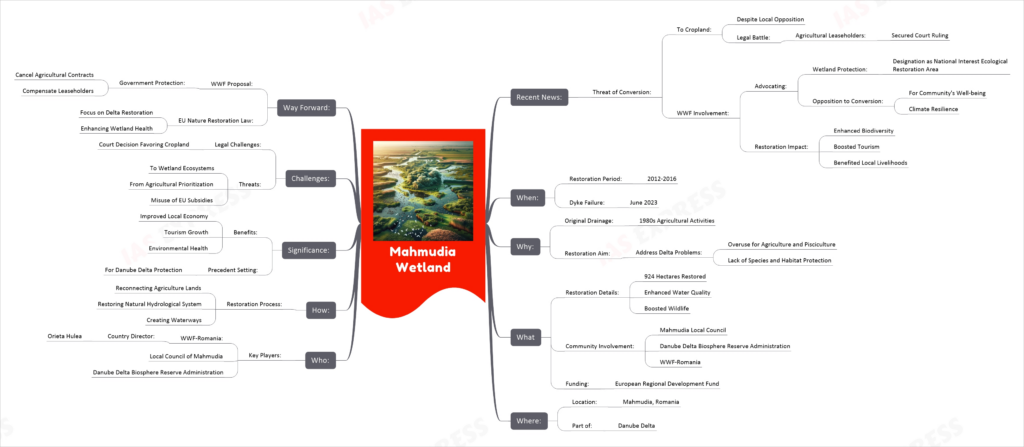Mahmudia Wetland

The Mahmudia Wetland, a part of the biodiverse Danube Delta in Romania, has undergone a significant transformation over the past decade. Initially drained for agricultural use in the 1980s, it was restored to a wetland between 2012 and 2016 through a collaborative effort involving WWF-Romania, the local council of Mahmudia, and the Danube Delta Biosphere Reserve Administration. This restoration, covering 924 hectares, not only improved the area’s biodiversity and water quality but also boosted the local economy, particularly in tourism and fishing.
However, a recent legal and environmental conflict has arisen. In June 2023, a dyke failure led to the flooding of additional farmland, expanding the wetland. Despite the local community’s preference to maintain this expanded wetland, agricultural leaseholders won a court ruling to convert it back to cropland. This decision threatens the entire wetland ecosystem, including the parts restored with EU funds. WWF-Romania has been advocating for the Romanian government to protect the wetland by designating it as a ‘national interest ecological restoration area.’ This would allow for the annulment of agricultural contracts and compensation of leaseholders from national funds. The situation in Mahmudia highlights the challenges in balancing agricultural development with environmental conservation, especially in ecologically crucial areas like the Danube Delta.

